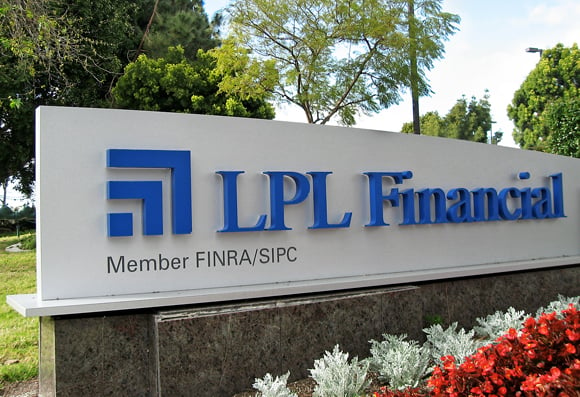Court receiver claims NRP failed to oversee accused adviser; 'one of the largest Ponzi schemes in Minnesota's history'
A broker-dealer whose assets were bought a year and a half ago by LPL Investment Holdings Inc. has been sued by a receiver in Minnesota for its alleged role in aiding a $150 million Ponzi scheme.
According to the lawsuit, which was filed Thursday in U.S. District Court in Minneapolis, NRP Financial Inc. “assisted in the proliferation of one of the largest Ponzi schemes in Minnesota's history.”
The suit, filed by R.J. Zayed, the receiver appointed by a federal judge to return assets to individuals and companies victimized by the scheme, accuses NRP of failing to supervise a former NRP broker, Jason Bo-Alan Beckman, who raised $47.3 million for the scheme from at least 143 investors, according to the lawsuit.
Mr. Beckman was a rep with NRP from 2005 to 2008, according to his profile on the BrokerCheck system of the Financial Industry Regulatory Authority Inc.
In July, he was charged in federal court in Minneapolis with 13 felony counts related to the alleged scheme, with the charges including aiding and abetting wire fraud, aiding and abetting money laundering, conspiracy to commit mail and wire fraud and aiding and mail fraud, according to BrokerCheck.
Mr. Beckman stole $7 million from his own firm, Oxford Global Advisors LLC, according to the complaint, which was first reported by the Minneapolis Star Tribune.
LPL said in July 2010 it was buying the assets of NRP Financial's parent, National Retirement Partners Inc.
The publicly traded company later revealed it paid $27 million in the deal, with the the primary assets coming from the broker-dealer.
At the time of the deal, LPL hailed the acquisition as a way into the pension and retirement market. LPL Investment Holdings is not named in the suit and, according to a company spokesman, does not have any liabilities in the matter.
“LPL Holdings only purchased certain assets of NRP, not the broker-dealer,” said spokesman Michael Herley. “LPL Holdings did not assume any NRP liabilities in connection with that asset purchase.”
Douglas Altman, Mr. Beckman's attorney in the criminal case, declined to comment about the matter.
The principal architect of the scheme was Minneapolis money manager Trevor Cook, according to the lawsuit. Mr. Cook is currently serving a 25 year in prison for his role in the scheme, according to the lawsuit.
The Ponzi scheme was “a supposedly ingenious strategy involving foreign currency arbitrage,” according to the lawsuit. Many of the clients who invested in the currency program were clients of Oxford Private Client Group LLC, the branch of NRP Financial which was owned, in part, by Mr. Beckman and Mr. Cook, according to the lawsuit.
“If [NRP Financial] had properly supervised Beckman, or investigated his improper transfers of clients' funds, or refused to transfer client funds to bank accounts maintained in the name of shell entities, or refused to permit Beckman to conceal his actions through the appearance of propriety by using [NRP Financial's] name and reputation to market the currency program out of its Minneapolis branch, the Ponzi scheme would have ended much sooner, and [Oxford Private Client Group] would have saved millions of dollars,” the lawsuit claims.
Clients were told that the currency program would generate annual returns of 10% to 12% with little or no risk to the investor's principal, according to the lawsuit. Mr. Beckman made representations about the currency program to clients from 2006 to mid-2009.
“According to Beckman, initially the Ponzi scheme was able to exploit minute discrepancies and fluctuations in exchange rates in under a millisecond because of ‘exclusive technology and unparalleled banking relationships'; the near- simultaneous buy/sell transactions allegedly netted a profit while not exposing the principal to any risk or loss,' the lawsuit claimed. “Later the currency program was said to exploit Sharia law to create interest rate discrepancies.”
NRP's predecessor, Oberlin Financial, knew that Mr. Beckman had a side business that involved trading currencies as early as April 2006, according to the lawsuit. NRP also knew that Mr. Beckman used marketing materials that listed an exaggerated claim of having $3.5 billion in assets under management, according to the complaint. NRP also knew that Mr. Beckman “was keeping blatantly improper, pre-signed transfer authorization in the file,” according to the lawsuit.







